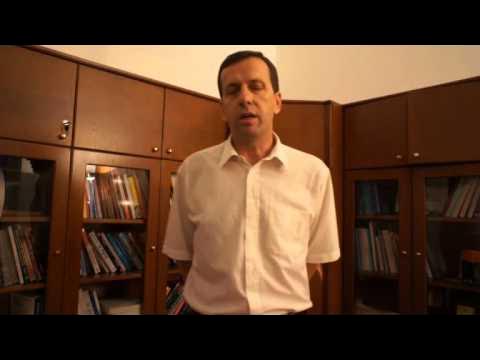Aula 01 Metodologia
Summary
TLDRIn this introduction to the Methodology of Study and Research course, Professor Bruno Tamancoldi emphasizes the importance of becoming a professional student, studying with effectiveness and excellence. He discusses the history of human innovation—from discovering fire to inventing the wheel and mathematics—illustrating how humans are driven by an insatiable desire for progress. The professor encourages students to embrace this course as a transformative experience, equipping them with the skills to approach their studies and life with a professional mindset. The lecture sets the stage for the upcoming lessons, promising a deeper dive into academic skills and personal development.
Takeaways
- 😀 The course 'Methodology of Study and Research' aims to transform students into professional learners, teaching effective and excellent study skills.
- 😀 The course is a core component of the curriculum at the Catholic University of Petrópolis, introduced in 2009.
- 😀 The professor emphasizes the importance of studying in an effective and efficient manner, not just for the sake of learning but for personal and professional growth.
- 😀 Humans have an innate dissatisfaction with the status quo, which drives progress and innovation, as illustrated by historical achievements like mastering fire and inventing the wheel.
- 😀 Studying in higher education is challenging and complex, but the drive for progress pushes individuals to engage in it despite its difficulties.
- 😀 The professor introduces themselves, sharing their background as a history teacher, with a master's degree in education, and a long-standing interest in study methodologies.
- 😀 There is a constant evolution in human history—people did not stop after learning to control fire, they progressed to inventing tools like the wheel, mathematics, and writing.
- 😀 The development of the wheel was a significant milestone, with profound implications for transportation and human progress.
- 😀 The professor highlights that students who are capable of learning complex tasks, like writing or mathematics, can achieve anything they set their minds to.
- 😀 The course will focus on both historical and modern concepts of knowledge transmission, including how systematic teaching methods evolved, and how they shape modern education.
- 😀 The professor invites students to engage with additional content on their YouTube channel for further exploration of these topics.
Q & A
What is the purpose of the 'Methodology of Study and Research' course?
-The course aims to transform students into professional learners, teaching them to study effectively and with excellence, preparing them for academic and professional success.
What does the professor mean by 'professional students'?
-A 'professional student' is someone who studies with effectiveness and excellence, mastering the process of learning and research.
Why does the professor emphasize the importance of 'efficiency and excellence' in studying?
-The professor stresses these qualities to highlight that academic success isn't just about quantity but the quality and depth of learning, which can be achieved through effective study techniques.
What example does the professor use to demonstrate human progress and satisfaction?
-The professor uses the example of fire management and how humans didn't stop at controlling fire but went on to invent the wheel, develop writing, and create other advancements, showing the insatiable nature of humanity's pursuit of improvement.
What historical reference does the professor make about humanity’s insatiable nature?
-The professor refers to the fact that humans, starting from the discovery of fire, continued innovating, inventing the wheel, developing mathematics, and other milestones, demonstrating their constant drive for progress.
How does the professor relate the development of mathematics to human progress?
-The professor explains that early mathematical concepts like numbers and symbols originated in the Arab world, where shepherds used stones to count sheep, symbolizing humanity’s ongoing desire to solve problems and make sense of the world.
What connection does the professor make between food, fire, and human development?
-The professor discusses how the ability to cook food with fire was a turning point for human survival, enabling better nutrition, which in turn contributed to human development and the rise of civilization.
How does the professor describe the importance of written language?
-The professor highlights the complexity of writing, noting that the development of phonetic writing systems was a monumental achievement, which allowed humans to communicate complex ideas, contributing to the growth of civilization.
What does the professor say about the complexity of learning to write?
-The professor points out that learning to write is a highly complex process that requires understanding symbols and their phonetic values, which is a critical skill for communication and learning.
What is the professor's stance on the pursuit of knowledge in higher education?
-The professor believes that pursuing higher education is an essential step in overcoming the complexity of knowledge and achieving personal and academic growth, stressing that students should not be afraid of the challenge.
Outlines

This section is available to paid users only. Please upgrade to access this part.
Upgrade NowMindmap

This section is available to paid users only. Please upgrade to access this part.
Upgrade NowKeywords

This section is available to paid users only. Please upgrade to access this part.
Upgrade NowHighlights

This section is available to paid users only. Please upgrade to access this part.
Upgrade NowTranscripts

This section is available to paid users only. Please upgrade to access this part.
Upgrade NowBrowse More Related Video
5.0 / 5 (0 votes)





